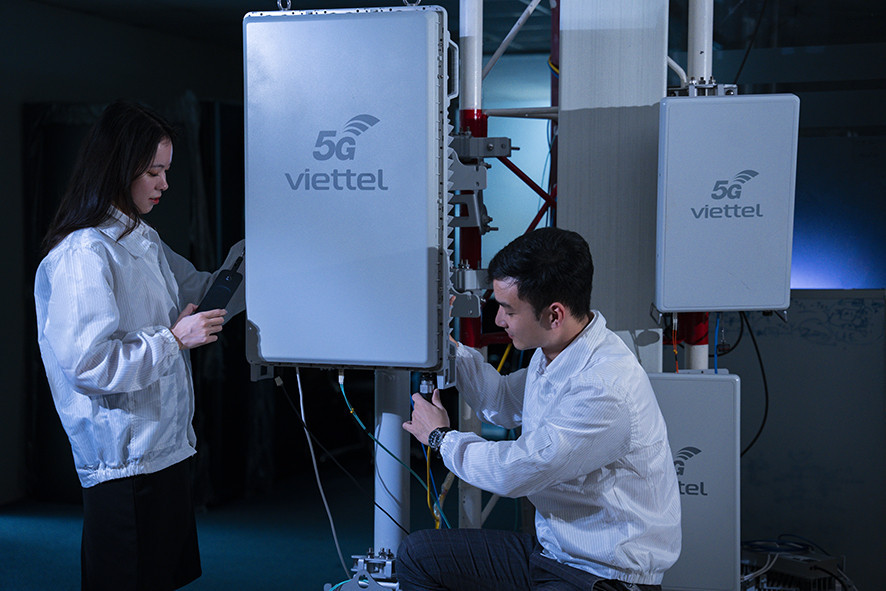
Long noted that Vietnam aims to have 68,457 5G stations by the end of 2025, equivalent to 57.5 percent of 4G stations, covering 90 percent of the population and targeting 99 percent coverage by 2030.
The Ministry said the telcos’ rapid 5G deployment reflects its commitment to developing digital infrastructure, aligning with the goals of Resolution 57.
The current state policy on offering 15 percent financial support to companies with 20,000 or more 5G stations under Resolution 193 and Decree 88 shows the government’s strong commitment to help them pursue this major goal.
Two telecom companies have already registered and have received support.
According to international studies, doubling network speed directly contributes to 0.3 percent GDP growth. Network infrastructure, including 5G, is akin to transport, electricity, or water systems. It must be developed comprehensively to maximize effectiveness. Mobile networks must cover not just major cities but nationwide.
The Ministry noted that for telecom carriers, infrastructure must be developed first, before business operations. Failure to invest in infrastructure will lead to falling behind with no path forward. Thus, state policies provide guidance and incentives for enterprises to deploy 5G nationwide, delivering a complete user experience and opening new opportunities for telecom businesses.
Without such policies, enterprises might delay investments by 2-3 years, but with appropriate support and direction, they can achieve basic nationwide 5G coverage within a year. The 15 percent investment subsidy for equipment is designed to encourage and offset costs for enterprises to shorten the timeline to achieve 90 percent population coverage by the end of 2025.
Regarding 5G infrastructure, the three licensed 5G service providers have developed plans for 2025, while two have registered for financial support to expedite 5G network infrastructure deployment under Resolution 193 and Decree 88.
In March 2025, Prime Minister Pham Minh Chinh directed the Ministry of Science and Technology to accelerate 5G commercialization, advance 6G research, and develop telecommunications satellites.
A key government directive is that economic growth must rely on science, technology, innovation, digital transformation, high-quality human resources, and improved productivity, aiming for sustainable, inclusive, and comprehensive growth that benefits the people.
Thai Khang